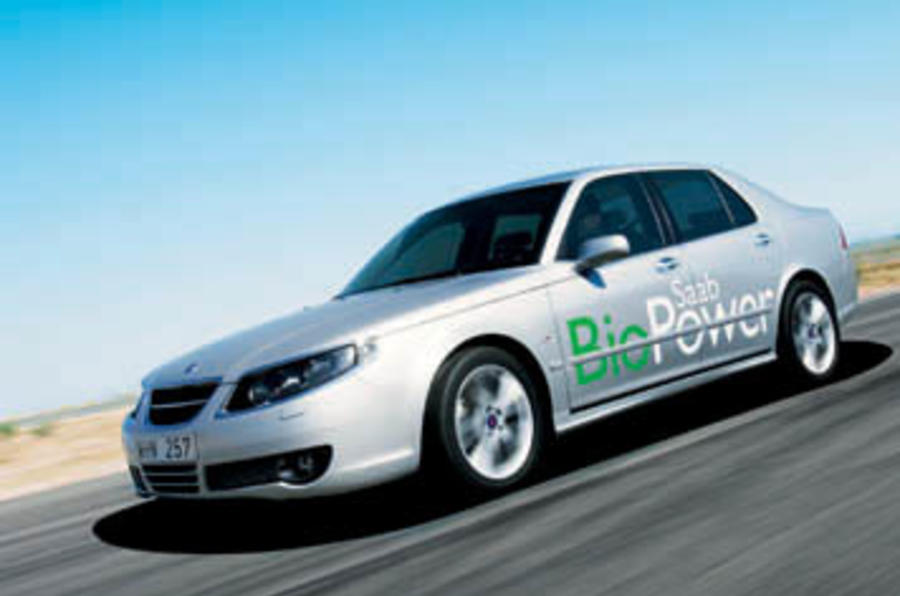What's new? This is the Saab 9-5 BioPower and its fuel will help Sweden be indpendent of crude oil by 2030. Blimey.The E85 bioethanol this Saab burns is made from crops - grain, sugar beet, forest residue. And so, the argument goes, the carbon dioxide the car emits (in similar levels to a petrol car, thus saving you nothing in company car or road tax) is partly neutralised by the very crops grown to make the fuel.Overall, carbon dioxide levels are between 50 and 70 per cent lower than a conventional petrol car's. There's a power increase, too. E85 (85 per cent bioethanol, 15 per cent petrol) has a 104 RON octane rating so can tolerate higher turbo boost pressures. The 2.0-litre 9-5 BioPower, available now, develops 180 rather than 150bhp, and has a sharper throttle response. We also tried a prototype Aero with 310bhp rather than 260, and a development 'True 2wd' limited-slip differential that allowed the 9-5 to deliver its power more cleanly, with more surefootedness and less torquesteer than a regular Aero. Both car and diff should reach production late this year.What's it like? You'll need to be something of a martyr to buy a 9-5 BioPower. Only 10 filling stations, all in Anglia and Somerset, have so far been earmarked to dispense bioethanol, which isn't cheap.Although there's a 20p per litre duty discount, production costs mean bioethanol is only 2p per litre cheaper at the pump than unleaded. Economy on E85 is around 20 per cent worse, too. At least you can fill the 9-5 up with regular unleaded if you can't find any E85 - the BioPower's engine management system adjusts to compensate.Should I buy one? Throw in a £600 premium over a standard 9-5 and you can see why Saab is planning to sell only 300 9-5 BioPowers in 2006. Tax incentives would make all the difference - they have in Sweden, where discounts on car tax, free city parking and congestion-charge exemption mean that 80 per cent of 9-5s sold are BioPowers.
Good performance, and a decent car. But it needs fiscal incentives to succeed.
Close














Add your comment